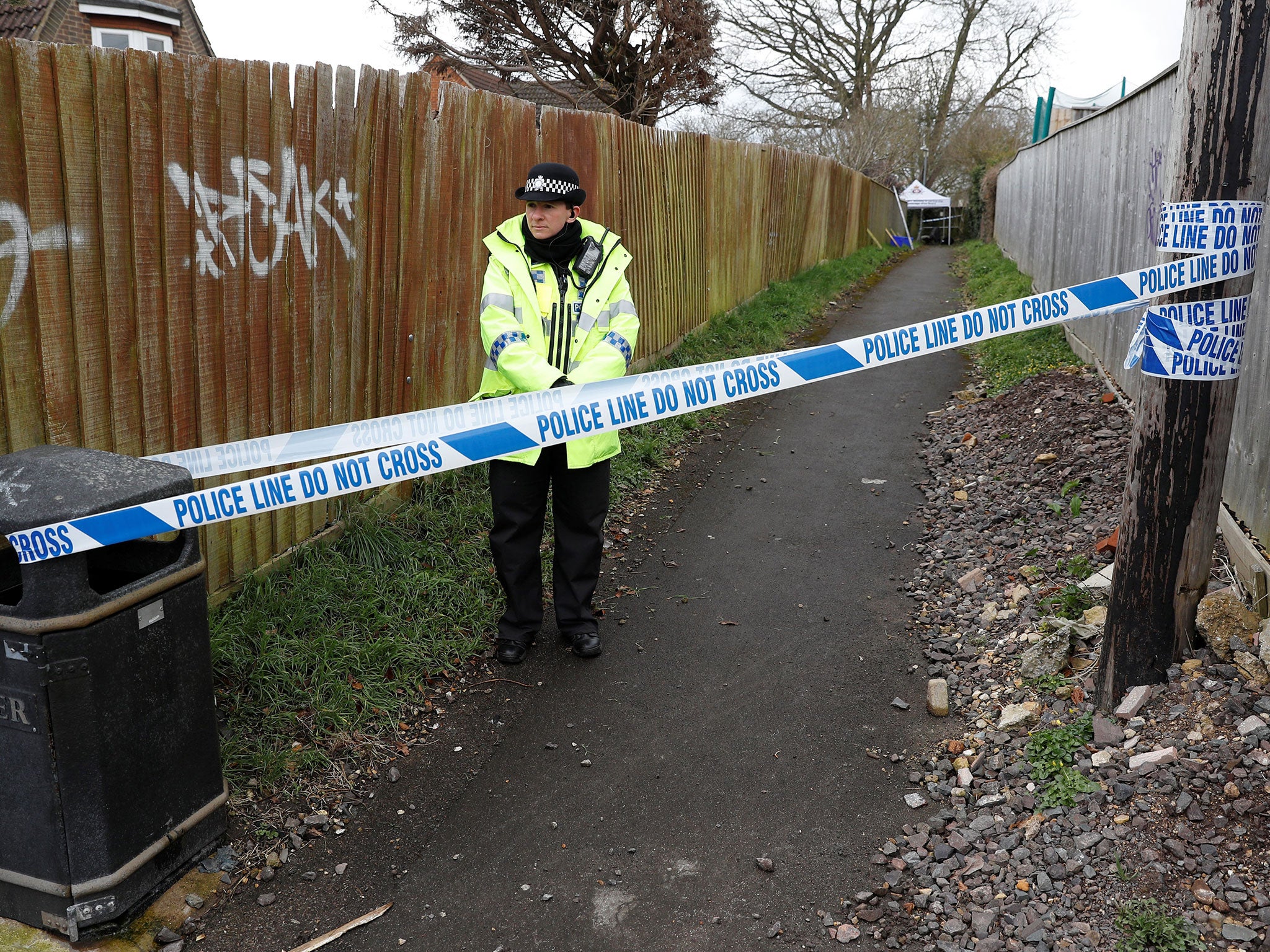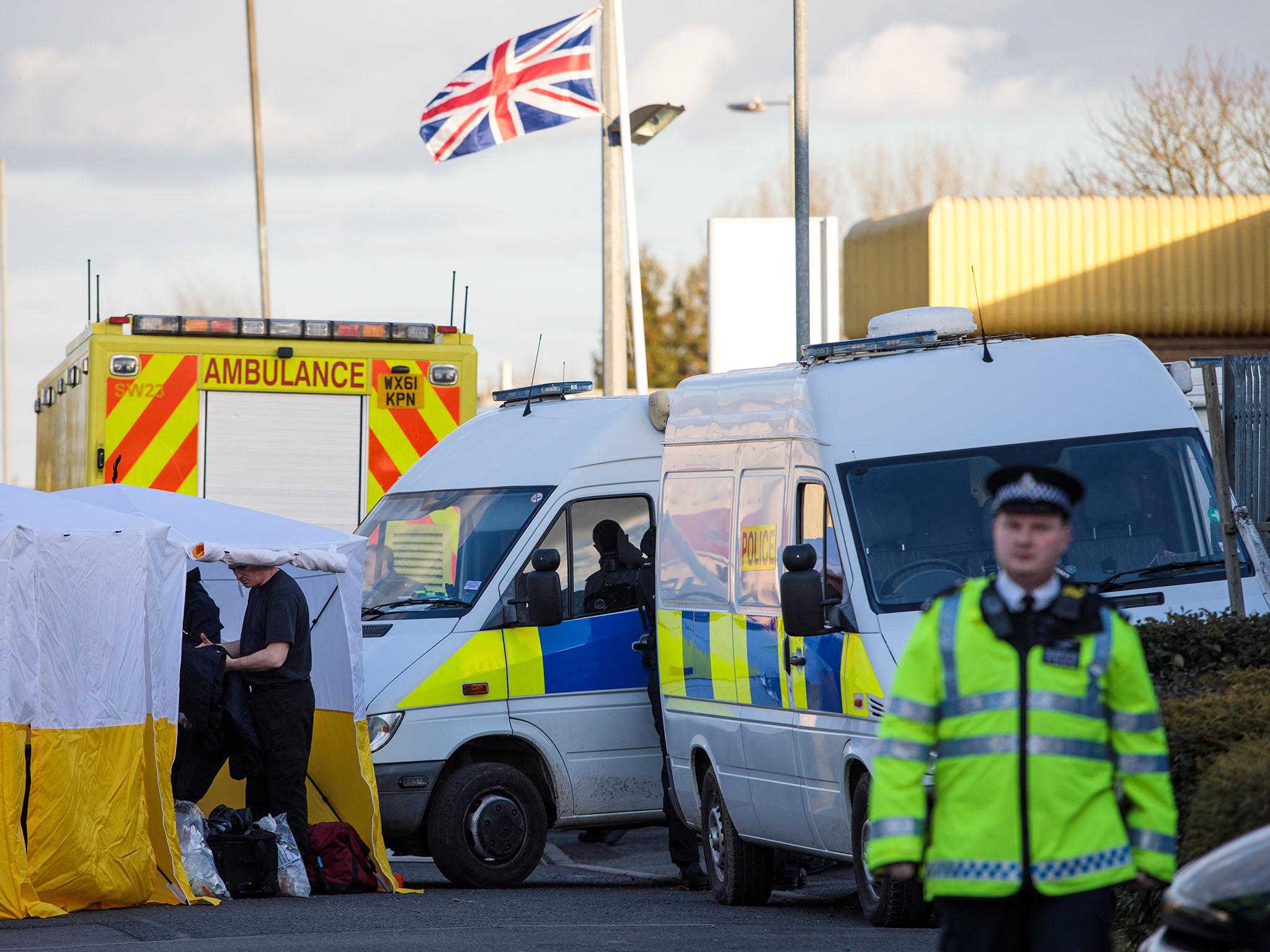Salisbury nerve agent attack: Sergei Skripal and daughter were poisoned with novichok on their front door
Around 250 counter terrorism detectives continue to investigate
The former Russian spy Sergei Skripal and his daughter are believed to have been poisoned by a military-grade nerve agent at their home, police said.
Detectives identified the highest concentration of the novichok nerve agent on the front door of their address in Christie Miller Road, in Salisbury.
Mr Skripal and his daughter, Yulia, remain in critical condition in hospital.
The Metropolitan Police said traces of the nerve agent have been found at some of the other scenes detectives have been working at over the past few weeks, but at lower concentrations.
Detectives will now focus their inquiries in and around the address, and specialist teams will step back from some of the other areas investigated over the past few weeks.
Around 250 counter terrorism detectives continue to work around the clock on the investigation, supported by a full range of experts and partners.
Officers continue to trawl through more than 5,000 hours of CCTV and examine over 1,350 exhibits that have been seized.
Around 500 witnesses have been identified and hundreds of statements taken.
The London Road cemetery, where his wife and son are buried, the Maltings shopping centre where Mr Skripal and his daughter were discovered unconscious, and the Ashley Wood compound have been handed back into the control of Wiltshire Police.

Deputy Assistant Commissioner Dean Haydon, Senior National Coordinator for Counter Terrorism Policing said: “At this point in our investigation, we believe the Skripals first came into contact with the nerve agent from their front door.
“We are therefore focusing much of our efforts in and around their address."

It comes after Russia, which has faced increasing global isolation after being held responsible for the attack, suggested UK intelligence officers may have been involved in the poisoning of Mr Skripal and his daughter, Yulia.
The Kremlin made the allegation after at least 26 countries expelled a total of more than 130 suspected Russian spies in response.
Britain insists there is no other plausible explanation for the novichok attack and has dismissed a series of suggestions emanating from Moscow as nonsense.

